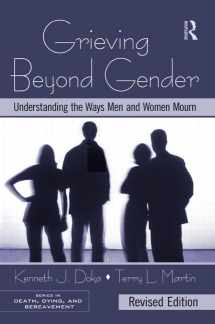
Grieving Beyond Gender: Understanding the Ways Men and Women Mourn, Revised Edition (Series in Death, Dying, and Bereavement)
Book details
Summary
Description
Grieving Beyond Gender: Understanding the Ways Men and Women Mourn is a revision of Men Don’t Cry, Women Do: Transcending Gender Stereotypes of Grief. In this work, Doka and Martin elaborate on their conceptual model of "styles or patterns of grieving" – a model that has generated both research and acceptance since the publication of the first edition in 1999. In that book, as well as in this revision, Doka and Martin explore the different ways that individuals grieve, noting that gender is only one factor that affects an individual’s style or pattern of grief. The book differentiates intuitive grievers, where the pattern is more affective, from instrumental grievers, who grieve in a more cognitive and behavioral way, while noting other patterns that might be more blended or dissonant. The model is firmly grounded in social science theory and research. A particular strength of the work is the emphasis placed on the clinical implications of the model on the ways that different types of grievers might best be supported through individual counseling or group support.


We would LOVE it if you could help us and other readers by reviewing the book
Book review



